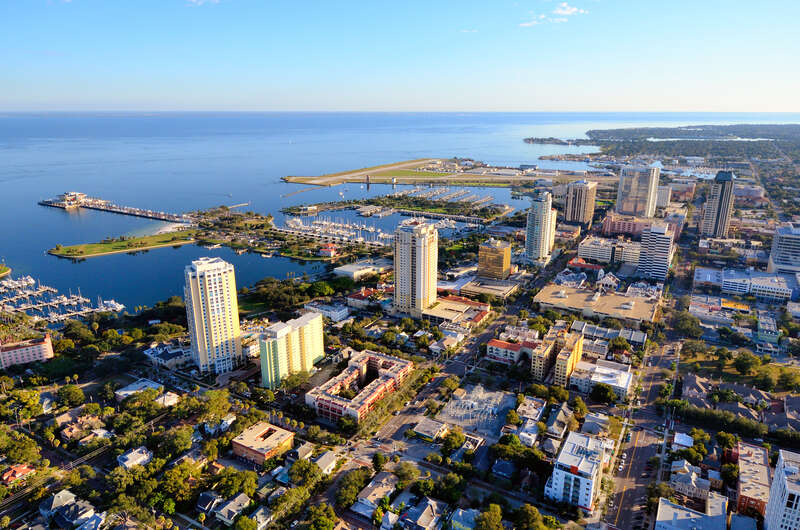Chalk this one up as probably the most intriguing update from this ongoing and growing wave of local communities seeking to push out privately owned electricity and move toward a public model.
St. Petersburg, Florida is where Duke Energy began, 125 years ago. Today, Duke is one of the largest investor-owned electric utilities in the United States, controlling the flow of electricity for more than 8 million in the eastern U.S. However, as St. Petersburg earnestly works toward its goal of 100% renewable power by 2035, leaders in the Florida city have begun questioning whether a partnership with Duke Energy is the best path forward.
This adds to the layers of intrigue here. In many stories of communities’ pursuit of a public power option, the motivations have run the gamut of revolting against corporate greed and disinterest. The investor-owned utility giants don’t care about their customers, public power advocates would say, and all of their decisions are made through the lens of increasing investor profits. However, in St. Petersburg, community leaders are considering a move away from Duke Energy because of distrust in Duke that they would help the city achieve its renewables and sustainability goals. The concerns over Duke’s commitment to sustainability come at an important time for St. Petersburg, which will have to decide whether to renew its contract with the energy giant that expires in 2026.
No decisions have been made yet, but city staff in St. Petersburg, according to the news outlet Catalyst, are urging the city’s elected leadership to begin recognizing the need for the conversation, especially as the contract negotiations prepare to get into full swing. St. Petersburg’s situation will be one to watch over the next few years. A decision to pursue public power there could whet the appetites of other communities around the country and stimulate a growing movement away from the investor model.















